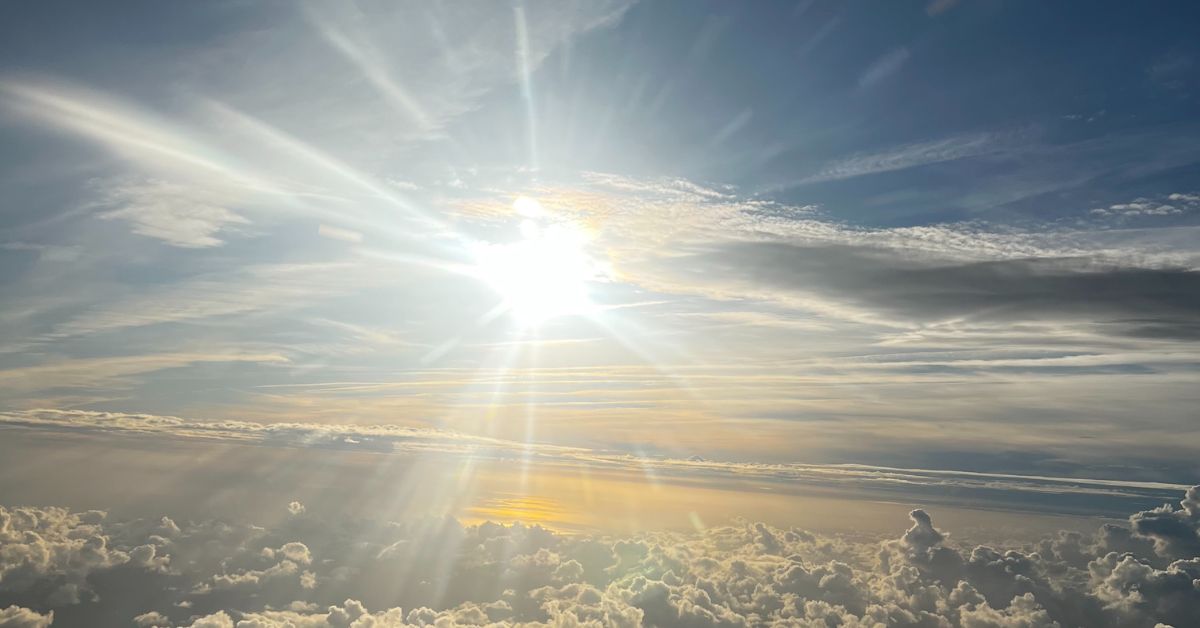I recently wrote a post about ‘Impermanence and Interbeing’ which you can read here if you haven’t read it – https://nfps.info/impermanence-and-interbeing/
In response to that post someone contacted me and asked me the following question:
“Hi Mark – love this. What is your take on “fear of death” and/or “gripping” hold of life? Genuinely interested given your background.”
This is my response, which I hope will help someone.
Thanks for your question [Name withheld], which is a very interesting one and a very pertinent one as I had a heart-attack nearly four years ago, so preparing for death has been something that I have been working on since then and I’m happy to share my thoughts with you.
The two things you mention, “fear of death” and/or “gripping” hold of life are, for me, two sides of the same coin.
From a Buddhist perspective all suffering comes from attachment.
Therefore, learning to let go is an important part in leading a happier life and if we can realise and accept that one day we will have to become detached from our physical bodies, eases the need to hold onto something that we know one day will have to let go of.
This is why I embrace the concept of impermanence and accept that nothing is permanent and that everything changes.
Understanding and learning about this has been, for me, quite liberating.
Don’t get me wrong here. I’m not a Buddhist but I find the teachings relevant as they compliment what science is now proving and they have helped me immensely.
Also, knowing that our bodies are primarily made up of empty space (which is actually energy) and understanding the first law of thermodynamics, which states that energy cannot be created or destroyed but can only transformed from one form into another, also makes me understand from a scientific perspective, that when we leave our physical form that is not necessarily the end.
From a scientific perspective, many scientists agree that everything is made up of atoms, which are themselves composed of subatomic particles and the general consensus is that these particles do not exist as independent entities so they can only exist as part of the whole.
According to this principle, an electron is made up of non-electron elements and the same is true for protons and neutrons.
A proton is made up of non-proton elements and a neutron is made up of non-neutron elements and both have a relationship with everything else in the cosmos (as does everything else).
This is ‘Interbeing’.
In addition to that, subatomic particles cannot be characterised as solid entities.
They are dynamic and always fluctuating and continually pop in and out of existence.
Add to this the fact that the fifty trillion or so cells that we are made up of are constantly changing, going through the transformation; birth and death if you like, at every moment, although they do not ‘die’ in the conventional sense of the word, they merely transform from one form to another.
Therefore, if we understand this we can conclude that there is no permanent self and we are always transforming from one form to another. We are constantly in a state of impermanence.
We are always ‘in-formation’.
The insight of interbeing for me is that nothing, including our human bodies, can exist by itself alone as a separate entity.
Each and everything exists only in relation to everything else in the cosmos.
Everything is interconnected.
So, because of impermanence, the the first law of thermodynamics, and interbeing (interconnectedness) I am happy in my understanding that although my physical being will one day no longer be that I will be there in every breath others take, in every flower and plant they see and in every cloud that passes overhead. In short, because of interbeing, we are always present in every living thing at all times.
I will continue to live on in my children and grandchildren as that is my continuation, just as my parents and grandparents continue to live on in me.
The fact is however, that no-one wants to die and even many Christians who believe in heaven don’t want to die to get there, this is, I believe, because they do not understand what I have just spoken of.
Thich Nhat Hahn, a Buddhist monk, once stated the following: “Our greatest fear is that when we die we will become nothing. Many of us believe that our entire existence is only a life span beginning the moment we are born or conceived and ending the moment we die. We believe that we are born from nothing and when we die we become nothing. And so we are filled with fear of annihilation.”
This is because most people stand outside of death. They fear it as they would a thief in the night that comes to take something away from them.
But I have been meditating on death and observing it in a penetrating way for some time now and the result is that it has allowed me to become one with it, and when it comes I hope to greet it like an old friend.
I hope that this post will help you.

